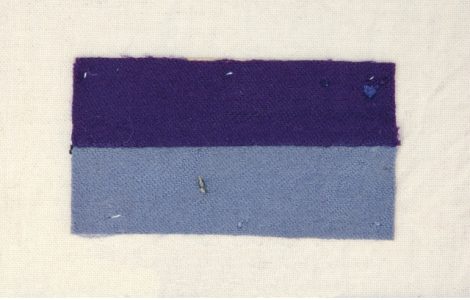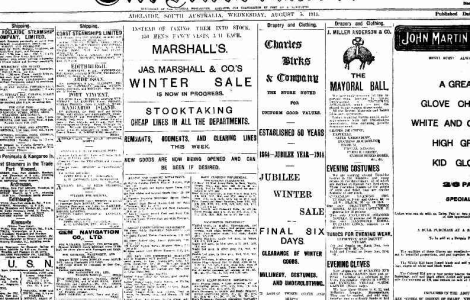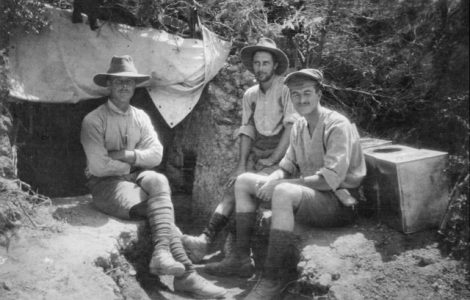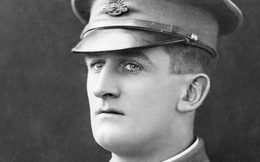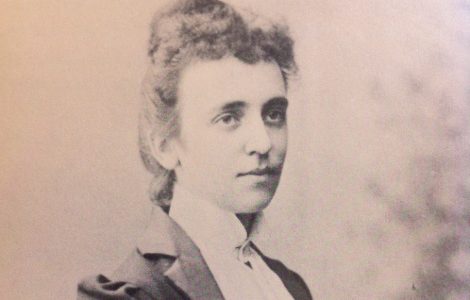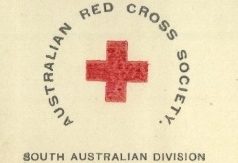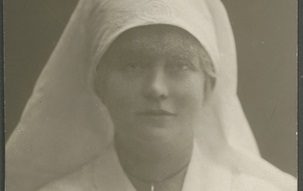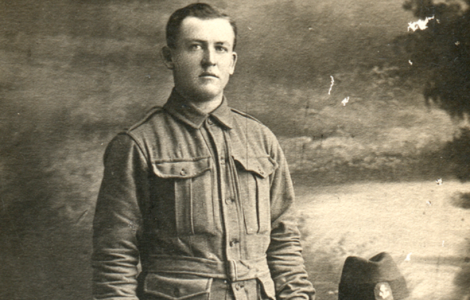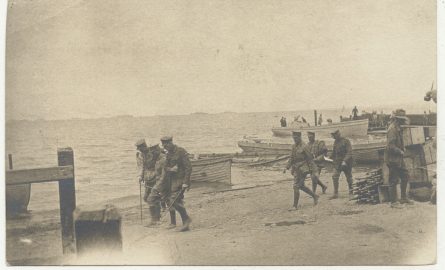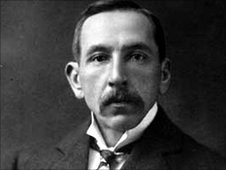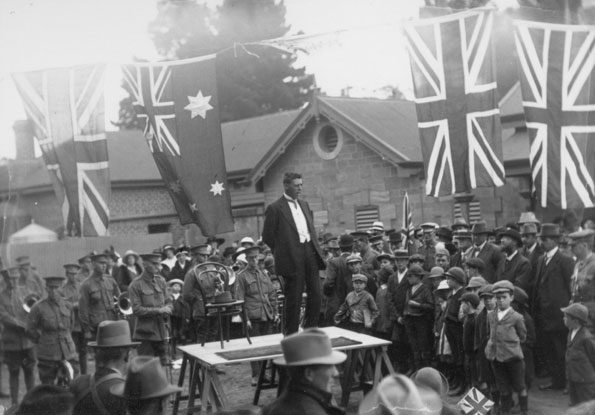
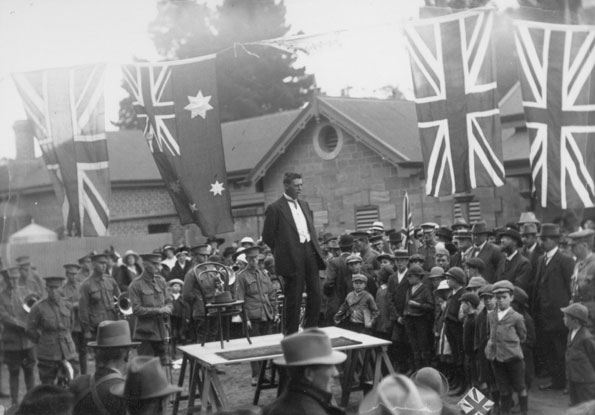
Glossary Terms
People
Vaughan, Crawford, Churchill-Smith, James, Hughes, Billy, Terrell, Frederick Leopold, Cooper, Ethel, Seager, Alexandrine
Organisations
South Australian Red Cross Information Bureau, Advertiser, 10th Battalion, Cheer-Up Society
April, 1916
The first anniversary of the Gallipoli landings was commemorated around the nation, and also around the world. Soldiers in Egypt observed the occasion, as did those who had recently arrived in France. 2000 soldiers who were training in England (1300 Australians and 700 New Zealanders) marched through the streets of London, cheered on by massive crowds. they made their way to Westminster Abbey for a memorial service attended by members of the Royal Family and other dignitaries, including Australian Prime Minister Billy Hughes.
FROM THE SOLDIERS
The 10th Battalion official diary resumed in April 1916 and we re-join them as they arrived in Marseilles. They travelled by train to billets in northern France, where they continued their training, including gas-helmet practice.
Our other correspondents remained in Egypt, where their routines remained similar to February and March – drilling and training, inoculations (which left Leo Terrell feeling a little under par), dust storms and letters to and from home. James Churchill-Smith writes sadly on his ‘dear girlie’ Kate’s 20th birthday about how much he misses home.
Mail services were obviously so important to soldiers and families alike, so we can only imagine the anguish that would have accompanied the news that 350 bags of mail were lost when the Sussex was sunk in the English Channel.
Poor Lou Avery began the month recovering well from typhoid, but by month’s end he was back in hospital in Heliopolis.
Churchill-Smith’s diary mentions a Captain Seager. This is the son of Alexandrine Seager, founder of the Cheer-Up Hut, whose poems we have been reading month by month. She had already lost one son at Gallipoli and the poem she wrote on the anniversary of the landing was full of emotion. No doubt the parents of Lance Alderson would have shared her pain – they were no closer to a definitive answer about the fate of their son, despite the work of the Red Cross Information Bureau to trace him. We know they were prepared for the worst, but it must have been distressing for them to read the accounts from the soldiers nearby when Lance was wounded.
IMPACT OF THE WAR
At home, the endless button days and other fundraising drives continued, including a call from the Mayor of Adelaide for donations to the Southern Cross Tobacco fund to ensure a ‘plentiful supply of the fragrant weed’ for soldiers! More wounded men returned home and the recruitment drive continued, with Premier Crawford Vaughan heading south on recruiting trains. The Premier’s message was clear: volunteer or face conscription. This debate around this issue was becoming more intense, as unions complained about businesses profiteering from the war, whilst workers’ and soldiers’ families did without.
RATIONING
Despite severe paper shortages in SA, bread was becoming cheaper again, the result of a good season. Not so in Germany, where Ethel Cooper continued to find ways to live within her limited means in Leipzig, although she didn’t seem impressed by the recipe suggestions for ravens and crows! One last dinner party with her friends before severe meat restrictions were introduced was a highlight.
HEADLINES AT HOME
In other news, an earthquake was felt in Petersburg in the state’s mid-north (before its name was changed to the more English ‘Peterborough’) and geologists were deployed to explore the area around Mt Gambier in the hope of finding viable oil deposits.
The Adelaide Cup was run at Victoria Park, as Morphettville was still in use as a military camp. The Oakbank races were held over the Easter weekend, but wet weather on Easter Monday meant the large crowds made their way home early.
As they remembered their dead from the Dardanelles campaign, Australians were buoyed by a message from the King: ‘Tell my people of Australia that to-day I am joining with them in their solemn tribute to the memory of their heroes who died in Gallipoli… Their valour and fortitude have shed fresh lustre on the British arms’. However, with hindsight we know that many, many more South Australian lives would be lost on the battlefields of Europe in the months to come.


